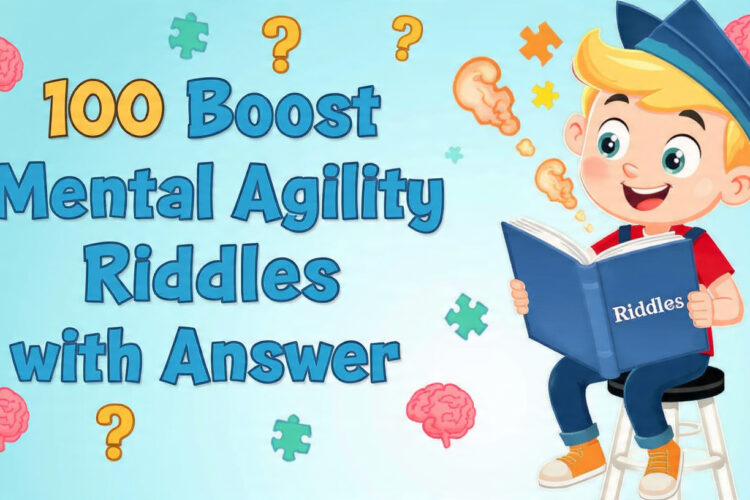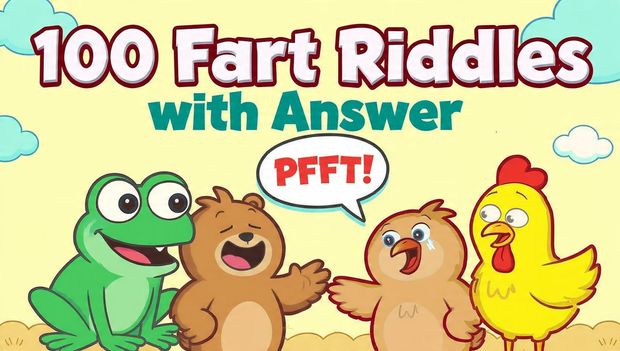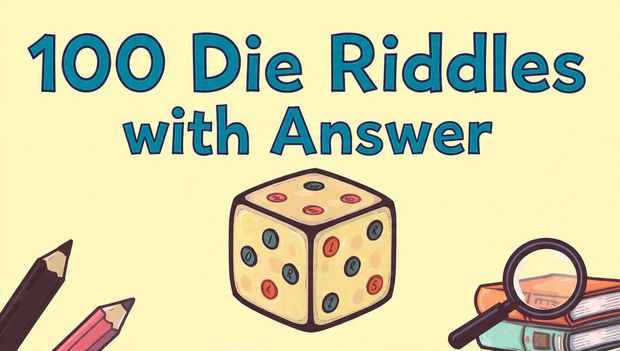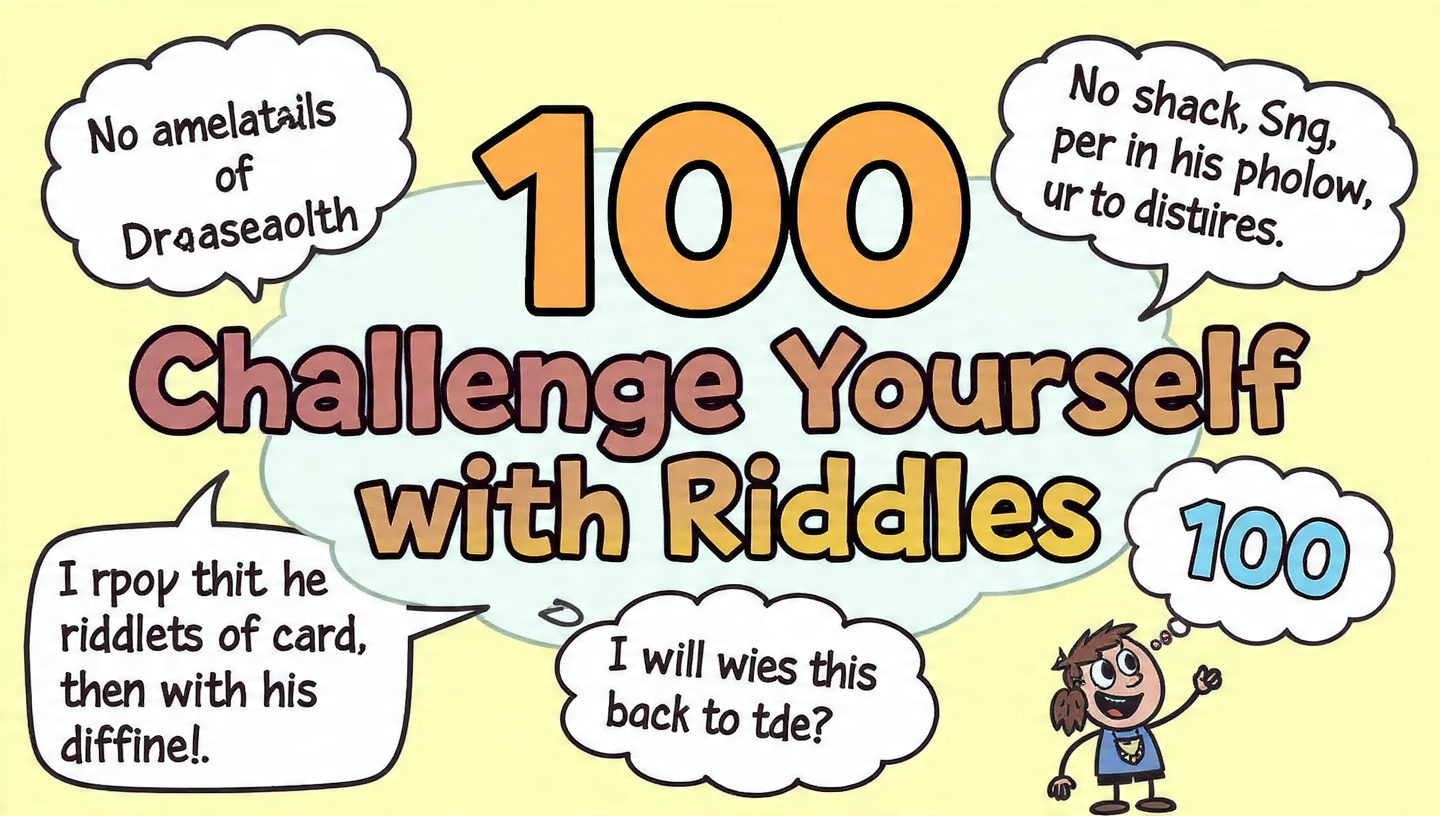
Riddles for Everyone
admin
6:00 am - October 14, 2025
1. What trains your mind to notice tiny patterns quickly?
Answer: pattern recognition
2. What improves your ability to hold facts while thinking?
Answer: working memory
3. What increases your speed at processing new information?
Answer: processing speed
4. What habit helps you focus for longer periods?
Answer: sustained attention
5. What technique helps link new facts to things you already know?
Answer: elaboration
6. What strategy helps you recall lists and sequences?
Answer: chunking
7. What practice strengthens brain connections through repetition?
Answer: spaced repetition
8. What method trains spatial memory using imagined places?
Answer: method of loci
9. What activity trains flexible thinking by forcing new approaches?
Answer: lateral thinking exercises
10. What supports quick decision-making under pressure?
Answer: pattern practice
11. What boosts focus by reducing distractions?
Answer: environment control
12. What daily habit refreshes your cognitive performance?
Answer: quality sleep
13. What nutrition element supports brain function?
Answer: omega-3 fatty acids
14. What physical activity increases blood flow to the brain?
Answer: aerobic exercise
15. What simple tool helps you practice retrieval of facts?
Answer: flashcards
16. What pastime strengthens verbal reasoning and vocabulary?
answer: reading
17. What game sharpens planning and foresight?
Answer: chess
18. What puzzle type improves pattern and number sense?
Answer: Sudoku
19. What cross-disciplinary skill helps you make novel connections?
Answer: analogical reasoning
20. What method helps you reduce stress and improve attention?
Answer: mindfulness meditation
21. What practice improves auditory working memory?
Answer: active listening exercises
22. What daily routine increases mental resilience?
Answer: deliberate practice
23. What technique aids long-term retention through vivid imagery?
Answer: visualization
24. What supports cognitive speed through timed drills?
Answer: reaction-time training
25. What helps you analyze problems step-by-step?
Answer: decomposition
26. What trains you to evaluate arguments critically?
Answer: critical thinking exercises
27. What habit strengthens concentration before tasks?
Answer: short focus bursts (Pomodoro)
28. What social activity sharpens conversational agility?
Answer: debate
29. What creative practice improves divergent thinking?
Answer: brainstorming
30. What language skill enhances cognitive flexibility?
Answer: bilingualism
31. What mental tool helps with memorizing facts via rhyme or rhythm?
Answer: mnemonic devices
32. What problem-solving approach trains hypothesis testing?
Answer: scientific method
33. What measurement helps you monitor improvement over time?
Answer: performance tracking
34. What activity strengthens fine-grained observation skills?
Answer: spot-the-difference exercises
35. What mental habit improves error detection?
Answer: reflective review
36. What structured game trains sequential logic?
Answer: programming puzzles
37. What tool increases working memory capacity with practice?
Answer: dual-n-back exercises
38. What daily habit helps consolidate learning?
Answer: review sessions
39. What learning style reinforces knowledge through teaching others?
Answer: peer explanation
40. What practice builds rapid category recognition?
Answer: semantic sorting
41. What task strengthens numerical reasoning under time limits?
Answer: mental arithmetic drills
42. What sensory activity sharpens multisensory integration?
Answer: music training
43. What movement-based practice improves coordination and cognition?
Answer: dance
44. What daily ritual improves attention switching?
Answer: varied-task practice
45. What cognitive approach improves decision-making with limited data?
Answer: heuristics training
46. What practice helps you recognize logical fallacies?
Answer: argument analysis
47. What challenge improves persistence and grit?
Answer: progressively harder puzzles
48. What tool helps you externalize and organize thoughts?
Answer: mind maps
49. What style of question forces deeper inference?
Answer: open-ended problems
50. What daily habit reduces cognitive fatigue?
Answer: regular breaks
51. What skill improves the speed of mental simulation?
Answer: scenario planning
52. What activity enhances spatial reasoning and visualization?
Answer: block-building puzzles
53. What technique helps you prioritize information quickly?
Answer: triage method
54. What formal study improves structured reasoning?
Answer: mathematical training
55. What challenge builds adaptability to new rules?
Answer: rule-changing games
56. What learning approach accelerates skill automation?
Answer: overlearning
57. What habit enhances sustained mental clarity?
Answer: hydration
58. What creative practice trains unexpected associations?
Answer: metaphor practice
59. What activity builds both speed and accuracy?
Answer: timed puzzles
60. What strategy reduces cognitive load when solving complex problems?
Answer: external notation
61. What training refines pattern-matching under noise?
Answer: signal detection practice
62. What mental routine strengthens sequence recall?
Answer: serial recall exercises
63. What practice develops stronger mental models?
Answer: systems thinking
64. What intellectual habit increases synthesis of ideas?
Answer: cross-topic integration
65. What practice improves attention to detail in text?
Answer: proofreading drills
66. What mental exercise sharpens inferential leaps?
Answer: analogy solving
67. What lifelong habit preserves cognitive agility?
Answer: continuous learning
68. What practice improves your ability to reverse engineer problems?
Answer: backward chaining
69. What cognitive activity trains rapid categorization?
Answer: speed sorting
70. What strategy helps you manage competing priorities mentally?
Answer: chunk prioritization
71. What learning method speeds up skill transfer?
Answer: varied practice
72. What mental tool supports quick error recovery?
Answer: metacognitive monitoring
73. What exercise improves visual-spatial rotation skills?
Answer: mental rotation tasks
74. What practice enhances your ability to spot inconsistencies?
Answer: cross-checking
75. What habit trains fast associative recall?
Answer: rapid-fire quizzes
76. What activity strengthens sequential problem solving?
Answer: logic grids
77. What technique helps encode facts into long-term memory?
Answer: elaborative rehearsal
78. What training reduces response hesitation?
Answer: timed decision drills
79. What approach improves adaptability to ambiguous problems?
Answer: ambiguity tolerance exercises
80. What cognitive tool helps you discover hidden structure?
Answer: pattern induction
81. What activity enhances semantic network growth?
Answer: vocabulary expansion
82. What practice strengthens sequential reasoning in text?
Answer: story reconstruction
83. What method trains you to see multiple solutions?
Answer: divergent-thinking tasks
84. What habit reduces mental clutter for clearer thinking?
Answer: decluttering routine
85. What practice improves your ability to generalize lessons?
Answer: abstraction exercises
86. What training helps you optimize problem-solving strategies?
Answer: strategy reflection
87. What cognitive game builds probabilistic intuition?
Answer: probability puzzles
88. What daily routine improves attentional switching speed?
Answer: alternating tasks
89. What practice builds robust mental representations?
Answer: multimodal encoding
90. What activity strengthens rule-based reasoning?
Answer: formal logic exercises
91. What technique enhances creative recombination of ideas?
Answer: concept blending
92. What practice improves the speed of hypothesis testing?
Answer: rapid experimentation
93. What training sharpens error detection in numbers?
Answer: number-sense drills
94. What habit supports cognitive recovery after heavy thought?
Answer: active rest (light activity)
95. What educational tool improves scaffolded learning?
Answer: progressive difficulty
96. What practice develops more precise mental representations?
Answer: focused imagery
97. What activity increases creative problem fluency?
Answer: idea-generation sprints
98. What technique helps you check assumptions quickly?
Answer: assumption testing
99. What practice reinforces linking cause and consequence?
Answer: causal mapping
100. What daily discipline produces lasting mental agility?
Answer: consistent practice
Popular Post


Recent Post
100 Dolphin Riddles With Answers – Fun & Clever Ocean-Themed
views
100 Fart Riddles With Answers – Funny & Hilarious
views
100 Dice Riddles With Answers – Fun & Challenging Board Game
views
100 Delicious Dinner Riddles – Fun & Tasty Brain Teasers
views
100 Epic Video Game Riddles With Answers – Fun & Challenging
views
Subcribe
Lorem ipsum dolor amet, consectetur adipiscing elit, sed tempor.



0 Comments